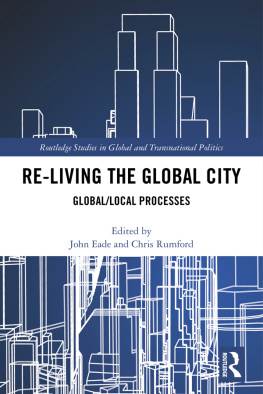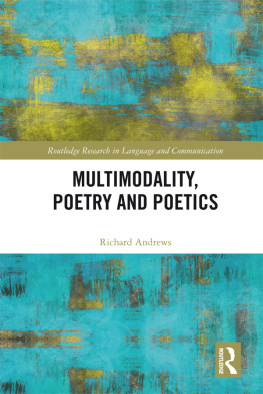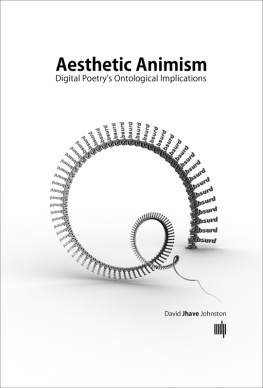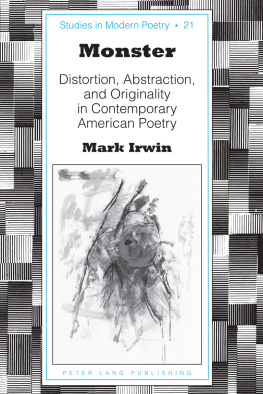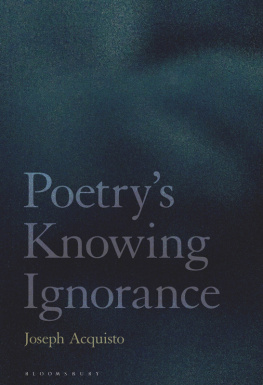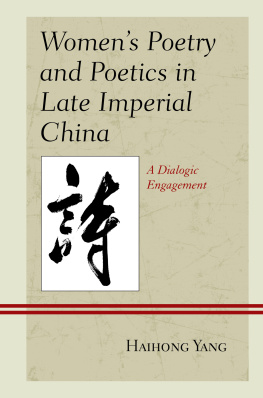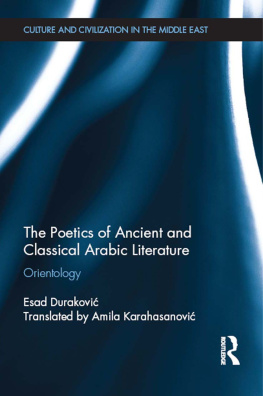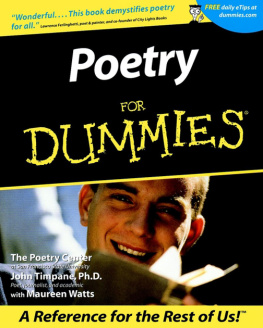CONTENTS
Guide
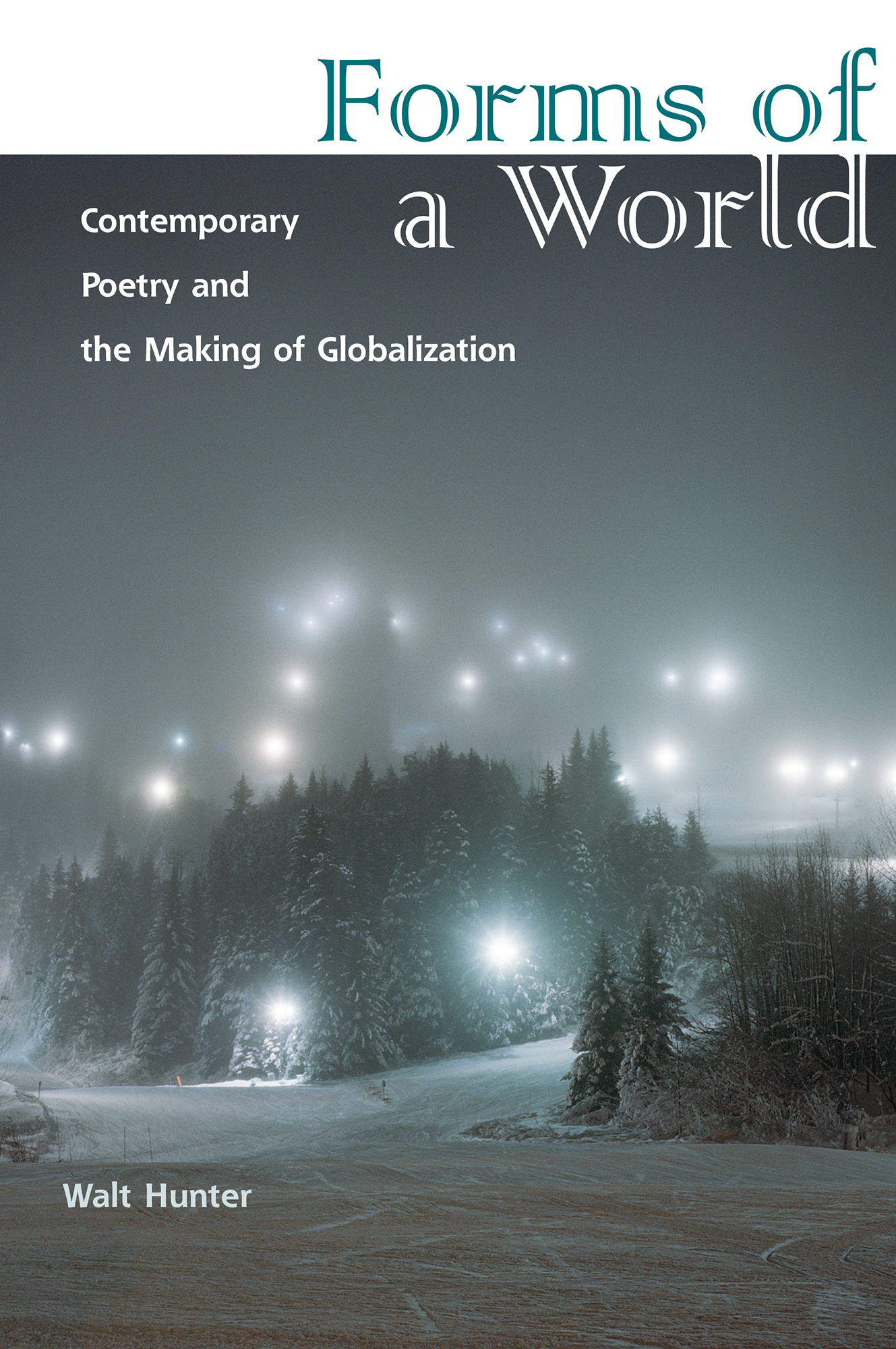
FORMS OF A WORLD
Forms of a World
CONTEMPORARY POETRY AND THE MAKING OF GLOBALIZATION
WALT HUNTER
FORDHAM UNIVERSITY PRESS
New York 2019
Fordham University Press gratefully acknowledges financial assistance and support provided for the publication of this book by Clemson University.
Copyright 2019 Fordham University Press
All rights reserved. No part of this publication may be reproduced, stored in a retrieval system, or transmitted in any form or by any meanselectronic, mechanical, photocopy, recording, or any otherexcept for brief quotations in printed reviews, without the prior permission of the publisher.
Fordham University Press has no responsibility for the persistence or accuracy of URLs for external or third-party Internet websites referred to in this publication and does not guarantee that any content on such websites is, or will remain, accurate or appropriate.
Fordham University Press also publishes its books in a variety of electronic formats. Some content that appears in print may not be available in electronic books.
Visit us online at www.fordhampress.com.
Library of Congress Cataloging-in-Publication Data
Names: Hunter, Walt, author.
Title: Forms of a world : contemporary poetry and the making of globalization / Walt Hunter.
Description: First edition. | New York : Fordham University Press, [2019] | Includes bibliographical references and index.
Identifiers: LCCN 2018010818| ISBN 9780823282227 (cloth : alk. paper) | ISBN 9780823282210 (paper : alk. paper)
Subjects: LCSH: Literature and globalization.
Classification: LCC PN56.G55 H86 2019 | DDC 809/.933553dc23
LC record available at https://lccn.loc.gov/2018010818
for Lindsay
FORMS OF A WORLD
This book shows how the forms of contemporary English-writing poetry emerge in dynamic relation to the transformations of globalization from 1970 to the present. It poses the following question: What happens when we think of poetry as a global literary genre and when we think of the global in poetic terms? I argue that poetry imagines powerful alternatives to the present and that analyses of globalization are incomplete without it. Forms of a World brings together a group of poets who not only make the violence of global processes visible thematically, but also renew performatively the missing conditions for intervening within these processes. Poetic actsin this book, the rhetoric of possessing, belonging, exhorting, and prospectingaddress contemporary conditions that render social life ever more precarious. Poets creatively intervene in global processes by remaking their poetrys repertoire of forms, from experiments in the sonnet to contemporary inventions of the ode. The political and economic conditions that the poets in this book engage are systemic and global. They include dispossession, commodified citizenship, financialization, precarity, ecological catastrophe, and territorial expansion. This book claims that poets register such global processes by remaking the poetic forms they have at hand.
I argue in this book that contemporary Anglophone poetry cannot be understood fully without acknowledging the global forces from which it arises. In the chapters that follow, I turn to an eclectic group of poets writing in Englishincluding U.S., British, Ghanaian, Iraqi, Irish, Jamaican, and Kashmiri figureswhose poetry and whose lives are, in different but related ways, inseparable from the contemporary global situation. These poets emphasize the performative functions of poetry, its calls to ethical and political change. At the same time, they examine forms of agency: their ecstatic strains of poetry place the poet in the service of powers that tend to exceed or call into question individual sovereignty. Forms of a World argues for the recognition of a global poetics in which the global is built into the literary form of the poem itself and is inseparable from its making.
Writing about contemporary poets brings me into close contact with the danger of casually assuming a narrow, ethnocentric definition for the word poetry. While poetic performance has been central to protests, revolutions, occupations, and forms of indigenous resistance, I have chosen in this book to examine primarily Anglophone, text-based poetry and to use close textual analysis as my method. My goal in this book is to reveal how certain primarily textual subgenres or modes of poetrythe landscape poem, the ode, the hortatory poem, the prospect poemreemerge concomitantly with structural transformations in global capitalism. Their lineages and genealogies are appraised and embedded in a politicized, material history. Each chapter investigates a particular literary form as it emerged in history and as it appears today. I hope this book renews and excites interest in the fate of English poetic subgenres such as the ode and the prospect poem, precisely by underscoring their situatedness within historical capitalism. These literary forms rise at particular moments to the imagination of poets who themselves write within and against material conditions of exploitation. The period I explore is one in which certain poetic forms have surged forward as modes of diagnosis, engagement, and the transformation of subjectivity.
In focusing on poets writing in English, I do not intend to make an equivalence between globalization and the experience of an Anglophone or Global-North elite. I argue that the poets here make visible contemporary conditions in which riot, crisis, and surplus populations have made their way into the overdeveloped and deindustrialized Global North. Studying these poets helps to reveal how crises in the capitalist world-system inflect the literary production of the United States, United Kingdom, and Europe. My object is to show how shared concerns with globalization have compelled poets to innovate within, renew, and transform text-based poetic traditions. The global appears in their work not only thematically, but also formally, as they attempt to thread global processes and subjectivities through the ode, the lyric, the hortatory poem, and the prospect poem. Taking this route also allows me to explore how poetrys global outcries subtend certain schools of poetry, bringing together experimental poets (Myung Mi Kim) with canonical ones (Seamus Heaney) in unexpected adjacency. While some of the poets are firmly embedded in academic discourses and practices of poetry, this book also highlights poets who challenge distinctions between text-based and performance-based practices, such as Manal Al-Sheikh, Sean Bonney, Sarah Clancy, and Danez Smith. I include these poets because they have been closely involved with immediate, public uses of poetry to create political change while producing published work and occasionally teaching in academic settings.
Anglophone poetry has been one of the last literary genres to be assimilated into the analysis of globalization, while the discourse of critical global studies continues to move from the social sciences into the humanities. The novel, its relation to social thought more immediately apparent, has been a more accessible site for investigations of historical capitalism, for the politics of neoliberalism, and for the ethics of precarity. When it comes to poetry, however, a formidable hermeticism has long held sway. While criticism of other literary genres expands its grasp, most notably into new sociological approaches to literature, knowledge of poetic devices serves as a border check for those interested in poetic criticism, slowing contemporary poetrys reception, inhibiting pedagogy, and operating like a canon of revealed truths. This study of twentieth-century and contemporary Anglophone poetry argues that the major poetic innovations of the contemporary period are conditioned by global forces. Yet rather than reflect passively the sociological conditions of its production, the poetry I consider senses these conditions before they are made fully present and offers a diversity of responses to global transformation, making the conditions apparent in which action might be possible. I draw attention to poets who intervene in the making of the global through the genres and formal languages available to them. From prose poetry to the prospect poem, from the poem of the crowd to the ode, these contemporary poets write within and remake formal conventions as the global itself develops and is remade.


